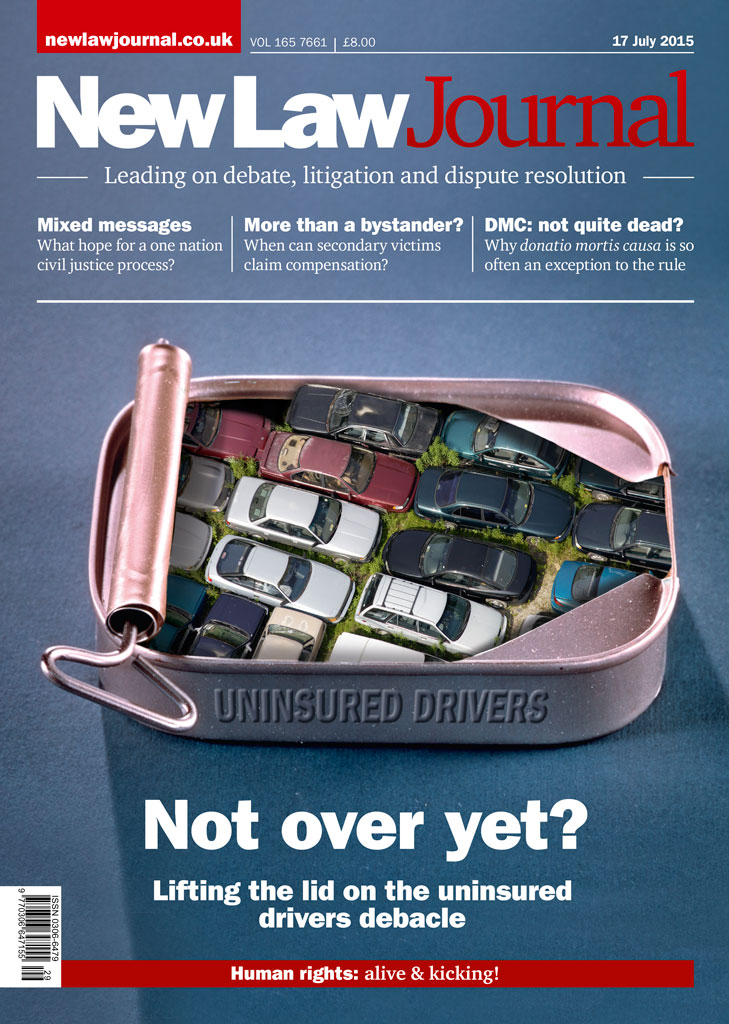
Alec Samuels puts the case for the reform of European human rights law
Can a “one nation civil justice process” become a reality in a budget restricted world? David Greene has his doubts
Dominic Regan steps back in time & sweeps through the evidence at hand
Professional indemnity insurance: Frank Maher reviews problems in practice
Adam Burrell eases the pain of costs management
Bunge SA v Nidera BV (formerly known as Nidera Handelscompagnie BV) [2015] UKSC 43, [2015] All ER (D) 03 (Jul)
Sony/ATV Music Publishing LLC and another v WPMC Ltd and another [2015] EWHC 1853, (Ch), [2015] All ER (D) 37 (Jul)
DSD and another v Metropolitan Police Commissioner; Koraou v Chief Constable of Greater Manchester Police [2015] All ER (D) 21 (Jul), [2015] EWCA Civ 646
Revenue and Customs Commissioners v Anson [2015] UKSC 44, [2015] All ER (D) 10 (Jul)
MOVERS & SHAKERS

Jurit LLP—Caroline Williams
Private wealth and tax team welcomes cross-border specialist as consultant
.tmb-mov69x69.jpg?sfvrsn=961ae4db_1)
HFW—Simon Petch
Global shipping practice expands with experienced ship finance partner hire
95ca96e3d47f4eff8d147c4f0df17c77.tmb-mov69x69.png?sfvrsn=3db5d86b_1)
Freeths—Richard Lockhart
Infrastructure specialist joins as partner in Glasgow office






